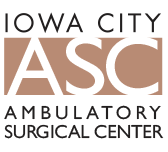HAMMERTOE SURGERY
Hammertoe can make walking difficult and painful. This condition occurs when the middle joint of one of your toes becomes permanently or semi-permanently bent at an awkward angle. Your toe may look like it is flexed at all times.
Hammertoe can be caused by a variety of factors, including trauma to the toe, ill-fitting footwear, or a lack of balance in the tendons.
Your physician will likely attempt to treat your hammertoe first by recommending various lifestyle changes. However, if those changes do not relieve the symptoms, surgery may be necessary to restore your mobility and decrease your pain.
Who Should Get Hammertoe Surgery?
Before you undergo hammertoe surgery, your physician will likely attempt to correct your condition by using non-invasive therapies. Your doctor will recommend that you rest the toe and change your footwear to avoid anything that might be too tight. You may also be given special exercises for your toe that may strengthen the muscles and tendons.
If changing your lifestyle and incorporating home therapies do not meaningfully help your toe, you may be a good candidate to undergo hammertoe surgery. In general, candidates for hammertoe surgery:
- Are in good enough general health to undergo surgery.
- Have good circulation throughout their feet.
- Have no active infections in the foot.
Talk to your physician about whether you’re a good candidate for hammertoe surgery at Iowa City Ambulatory Surgical Center.
What Happens During Hammertoe Surgery?
Hammertoe surgery is most often performed on an outpatient basis, meaning patients will be able to return home the same day as their surgical appointment. For most people, no overnight stays at a hospital will be necessary.
During a hammertoe surgery, your surgeon will focus on three possible means of treating your condition:
- Tendon transfer: Because hammertoe is sometimes caused by an imbalance in tendon tension, this approach focuses on repositioning your tendons to a different part of the toe. When this occurs, the toe is able to sit more flatly.
- Fusion: In more serious cases, your physician may decide that the tendons and ligaments of the toe need to be cut. In some cases, the bones of the toe are also fused together, in order to give them a little extra strength and structure. Pins and screws are used to hold the fused bones in place.
- Joint resection: In this variation of the procedure, a small section of your toe bone will be removed. Your tendons and ligaments will also be cut (relieving the tension on your toe). Screws will be used to hold the bones in place after surgery.
Which approach your surgeon takes will depend on your specific symptoms and the underlying cause of your hammertoe. In cases where the toe retains some flexibility, tendon transfer may be the preferred option. But if the toe is completely inflexible, your surgeon may recommend joining resection or fusion.
Hammertoe surgery with pins can often help patients achieve significant improvements in mobility and diminish pain in the long run. Is hammertoe surgery with pins worth it? If the symptoms warrant that approach, yes.
Hammertoe Surgery Recovery
Once your procedure is complete, you’ll be able to return home for your recovery. In most cases, hammertoe surgery will require somewhere between two and six weeks to fully recover from. Your recovery from hammertoe surgery may look like this:
- Days 1-2: Your mobility will be quite limited. You’ll need someone to drive you home from your surgery on the first day, and it’s likely you may need someone around the home to help you with everyday tasks for at least the first 48 hours or so. If you live in a house with stairs, make sure everything you need is on one level.
- Week 1: Do not get your foot wet or soak your foot until your surgeon lets you know it’s okay.
- Week 2-3: After the third week or so of recovery, you should be able to return to most light activities, such as driving. At this point, the screws in your toe may also be removed.
Your toe may not be completely healed for a month or two, and low-level swelling may persist for up to a year after your procedure. However, you should regain significant improvements in mobility and experience a noticeable diminishing of pain and discomfort.
Complications
As with any surgical procedure, there are some hammertoe surgery complications that all patients should be aware of. For example, infections, bad reactions to medication, and even nerve damage have been known to occur. These complications are quite uncommon, however, and the vast majority of patients have a positive outcome.
An Outpatient Procedure
Because hammertoe surgery is an outpatient procedure, you may be able to avoid the hospital altogether. Ask your doctor whether you’re a good fit to have your hammertoe surgery performed at the Iowa City Ambulatory Surgery Center for a clinic-like atmosphere and an in-and-out experience.
Talk to your physician about your hammertoe surgery options today.
Opt to Have Your Surgical Procedure Performed at an ASC
Our team at Iowa City ASC compiled some helpful stats and figures that highlight the cost savings between hospitals and ASCs. If you are curious about the cost difference between hospitals and ASCs, download our resource and find out how you can save money on your healthcare!







